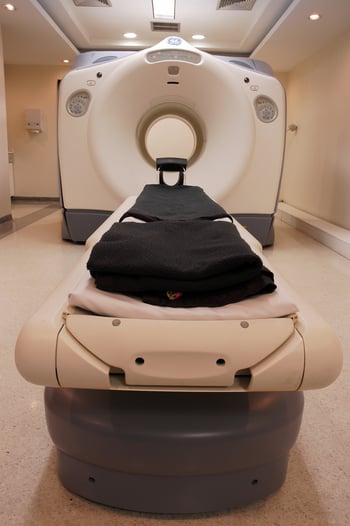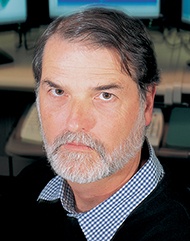 A researcher at University of California, Davis has received a $2.88 million grant from the National Cancer Institute for the continued development of computed tomography (CT) technology used in breast cancer detection.
A researcher at University of California, Davis has received a $2.88 million grant from the National Cancer Institute for the continued development of computed tomography (CT) technology used in breast cancer detection.
John Boone, M.S., Ph. D., who is a medical physicist and professor of radiology at UC Davis, will be studying a group of 400 women with suspicious breast legions for the project. The study will compare both mammography and magnetic resonance imaging (MRI) to breast CT to determine which modality is better at detecting breast lesions that are ultimately proven to be cancerous.
“Because breast cancer can present as both soft tissue masses and as micro-calcifications, this means that our newest scanner needs to detect both better than digital mammography,” he said. “Only then will breast CT technology be able to improve breast cancer detection rates in women at normal risk for breast cancer.”
“If shown to be equivalent to contrast-enhanced breast MRI, contrast-enhanced breast CT would be a viable and far more cost-effective tool for imaging women with suspicious lesions,” Boone said. “This would likely reduce the negative biopsy rate and increase the positive predictive value of breast imaging in general.”
In total, over 600 patients have already been scanned using new CT technology, at both UC Davis and at University of Pittsburgh.
 “Our long-term goals are to show with our newest scanner that we can improve cancer detection rates in the screening population over that of mammography and tomosynthesis,” Boone said. “By increasing the performance of breast cancer screening in a practical and cost-efficient manner, we hope to move the standard-of-care to true 3D breast imaging in order to improve care and increase survival in women with breast cancer, and importantly to also reduce over-treatment of women with benign findings.”
“Our long-term goals are to show with our newest scanner that we can improve cancer detection rates in the screening population over that of mammography and tomosynthesis,” Boone said. “By increasing the performance of breast cancer screening in a practical and cost-efficient manner, we hope to move the standard-of-care to true 3D breast imaging in order to improve care and increase survival in women with breast cancer, and importantly to also reduce over-treatment of women with benign findings.”
In addition to this important research into the efficacy of breast cancer screening methods, researchers at UC Davis are making important advances in the fields of life science and medicine every day.
For their efforts, scientists, researchers and educators at University of California, Davis are among the most highly subsidized and active researchers in the nation. For example:
- UC Davis received 429 awards from the National Institutes of Health in FY 2014, totaling over $189 million.
- UC Davis has received over $53 million in NIH funding so far in FY 2015.
- UC Davis has almost 1,000 basic science, translational and clinical research studies in progress.
- UC Davis provides over 225 scientists with $85 million in research funding to improve cancer care.
- In 2014, the University of California, Davis Health System received over $220 million in external research funding.
- UC Davis researchers were recently granted $53 million in awards towards stem cell research.
 Scientists at UC Davis spend millions of dollars every year on new biotechnology and lab supplies to further research in the fields of oncology, pediatrics, neurology, veterinary medicine, and a host of other disciplines.
Scientists at UC Davis spend millions of dollars every year on new biotechnology and lab supplies to further research in the fields of oncology, pediatrics, neurology, veterinary medicine, and a host of other disciplines.
Biotechnology and laboratory supply vendors interested in promoting lab products in this industry leading market will be attending the 16th Semiannual BioResearch Product Faire™ Event at The UC Davis Medical Center on June 2, 2015.
If you are a lab supply vendor, this event is one of your best opportunities to reach out to active researchers in Northern California.
In order to help you network and promote your biotech and lab products, Biotechnology Calendar, Inc. hosts events that are among the most popular, well-organized, and affordable life science events in the nation- and they take place exclusively at top universities and research facilities.
To find our more about exhibiting your lab products and new biotechnology at this popular and industry-leading event, click below:
For a full schedule of 2015 BCI Events, click here:









